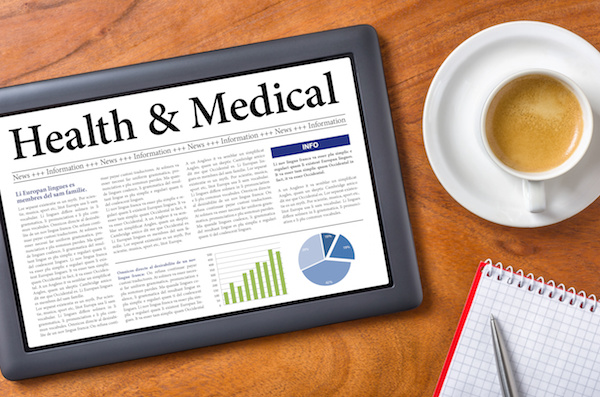
Here are some of the latest health and medical news developments, compiled by the editors of HealthDay:
U.S. Births Decline Again in 2010: CDC
The weak economy may have contributed to a decline in U.S. births for the third year in a row, experts suggest.
The country’s birth rate fell 3 percent to slightly more than 4 million births in 2010, according to preliminary figures released Wednesday by the Centers for Disease Control and Prevention, the Associated Press reported.
The number of births in the United States had been rising for years and reached an all-time high of 4.3 million in 2007, but have been dropping since then. However, the new statistics suggests that the decline is leveling off because the birth rate appeared to bottom out in the last three months of 2010.
But study lead author and CDC demographer Paul Sutton said it’s too early to say whether that actually signals an end to the decline in births, the AP reported.
Along with the struggling economy, a drop in Hispanic immigration due to the weak job market may have contributed to last year’s lower number.
“Hispanics have higher birth rates,” Dr. Roger Rochat, of Emory University, who has studied fertility and abortion trends, told the AP.
—–
FDA Warns About Drugs With Similar Names
Confusion about the names of two medicines is leading to medication errors that have resulted in the hospitalization of some patients, the U.S. Food and Drug Administration says.
The problem involves risperidone (Risperdal) — an antipsychotic medication used to treat mental illnesses such as schizophrenia, bipolar disorder and irritability in people with autism — and ropinirole (Requip), a dopamine agonist used to treat Parkinson’s disease and Restless Legs Syndrome.
Factors contributing to the confusion between the two drugs include: similarities of both the brand and generic names; similarities in container labels and carton packaging; illegible handwriting on prescriptions; and similar drug characteristics, such as drug strengths, dosage forms and dosing intervals.
Doctors need to clearly print or spell out the medication name on prescriptions and ensure their patients know the name of their prescribed medication and their reason for taking it, the FDA said.
—–
Lead Poisoning Epidemic in China Being Hushed Up: Report
Chinese officials are attempting to cover up a lead poisoning epidemic that’s affecting millions of children, according to a Human Rights Watch report released Wednesday.
The group said authorities are often denying victims testing, treatment and prevention and have failed to clean up contamination or to shut down polluting factories, the Associated Press reported.
“Children with dangerously high levels of lead in their blood are being refused treatment and returned home to contaminated houses in polluted villages,” said the group’s health and human rights director, Joe Amon.
Chinese officials declined to comment on the charges, the AP reported.
—–
Teens Brains Predict Songs’ Success: Study
Teens’ brain activity may be able to predict hit pop songs, according to a new study.
The study included 27 teens, ages 12 to 17, who listened to song clips from largely unknown artists on MySpace. Brain imaging scans were conducted as the teens listened to the music, msnbc.com reported.
The researchers tracked the success of the songs for the next three years and found that activity in the ventral striatum area of the teens’ brains predicted future sales figures and popularity of the songs.
“We found that when an area of the brain associated with reward and anticipation was active while listening to the song, chances were greater that the song would eventually go on to sell more than 20,000 units,” said Dr. Gregory Berns, a neuroeconomist and director of Emory University’s Center for Neuropolicy, msnbc.com reported.
The study appears in the Journal of Consumer Psychology.
—–
Number of New E. Coli Cases Slowing: German Officials
Another death from E. coli was reported in Germany, but the number of new cases of illness has slowed considerably, the country’s national disease control center says.
Only seven more people were reported ill Tuesday, bringing to 3,235 the total number of people in Germany known to have been sickened in the E. coli outbreak, according to the Robert Koch Institute, the Associated Press reported.
The death of a 2-year-old boy in the northern German town of Celle brought the death toll from the deadliest known outbreak of E. coli to 36 in Germany and one in Sweden.
Officials believe the source of the outbreak is vegetable sprouts from a farm in northern Germany, the AP reported.
—–
Flavored Milks Banned From L.A. Schools
Chocolate and strawberry milk will be eliminated from schools in the Los Angeles Unified School District as of July 1.
The decision Tuesday by the largest school board in the United States is meant to help combat child obesity, the Associated Press reported. Flavored versions of milk contain high amounts of sugar.
The ban on chocolate and strawberry milk was introduced by Superintendent John Deasy after recent criticism of the school district by popular British TV chef Jamie Oliver, who claims that flavored milk has the same amount of sugar as a candy bar.
A number of other school districts nationwide have stopped serving flavored milk, the AP reported.
—–
U.S. Drivers at Heightened Risk for Skin Cancer on Left Side
Drivers who like to keep their window down may be at increased for skin cancer on the left side of their bodies, according to a new study.
Researchers analyzed a U.S. government database and found that Americans are more likely to develop skin cancer on the left side of their body, USA Today reported.
Driving with an open window may be to blame, because it causes the left side of the body to receive more UV radiation, the University of Washington researchers suggested.
The study was published online in April by the Journal of the American Academy of Dermatology.
Car windows block most sunburn-causing UVB rays, USA Today reported.

